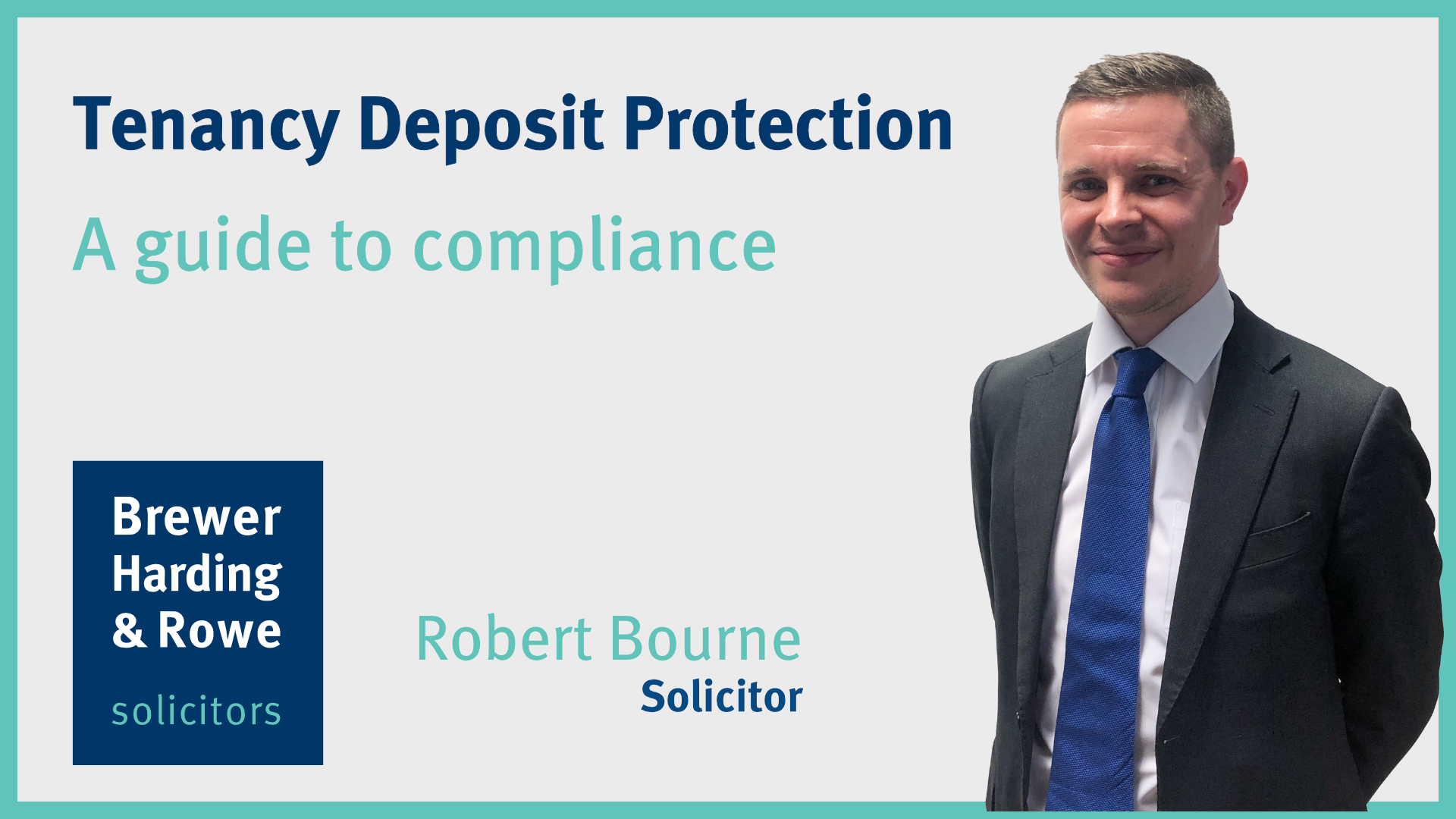Tenancy Deposit Protection
Seminars for Landlords
In the past we have been pleased to welcome a number of local landlords and letting agents to our landlord seminars at the Barnstaple Hotel, which we now plan to do twice a year.
This session gave an overview of how to get section 21 possession claims right. We ran through the requirements of the claim form and what the law requires of us when we are running a tenancy, especially if you want to rely on a notice in the future. Whilst we covered a number of areas one part which can be particularly tricky to get right is protecting tenant’s deposits.

Deposit Protection
1. What is a tenancy deposit?
When a tenancy is started landlords usually like to have a deposit paid. This is to cover any unpaid rent or other issues which come about during the tenancy.
Not all deposits will be classed as tenancy deposits. For instance, rent in advance or anything else given over to be held other than money will not be a tenancy deposit which concerns the section 21 process.
- Money
- Which is intended to be held in connection with the performance of a tenant’s obligations, or in discharge of any other liabilities in connection with the tenancy.
2. What should you do?
When you receive a tenancy deposit this should be protected within 30 days.
It can only be protected with an authorised scheme. There are only three authorised by the government. These are the Tenancy Deposit Scheme (TDS), The Deposit Protection Service (DPS) and MyDeposits. The money can either be held by the scheme or secured under a custodian scheme.
3. Is there anything else you should do?
Once the deposit has been protected you will need to serve on the tenant information and documents. The deposit protection scheme should inform you what you need to provide your tenants. This is a rather lengthy list, however much of it is usually contained in a good tenancy agreement. This information also needs to be given to the tenant within 30 days of receiving this money.
4. What happens if you do not do this?
If the deposit has not been protected or the information at (3) has not been served within 30 days there are two problems you might face:
- Whilst you have an unprotected deposit or there are issues with the information served, you cannot serve a valid section 21 notice; and
- The Court has the power to award the tenant compensation. This can include the return of the deposit in full and the court must order compensation between one and three times the value of the deposit for each tenancy there has been. This can include rolling tenancies after an assured shorthold tenancy has ended.
5. What should I do if this has happened?
If you have concerns about the protection of a tenant’s deposit and you would like to discuss this please contact the dispute resolution team at our Barnstaple office on 01271 342271 or contact me direction by email at Robert.bourne@bhrlaw.co.uk.
or call one of our offices:
Barnstaple - 01271 342271
Bideford - 01237 472666
Braunton - 01271 812033